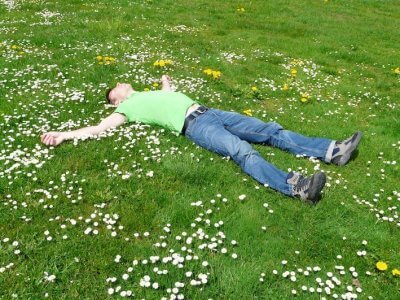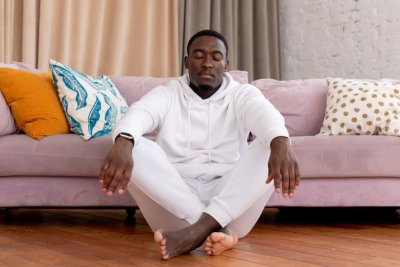How to Relax – If Winding Down is a Struggle, Read This

photo by pixabay on pexels
by Claudia Cole
Do you remember the last time you felt truly relaxed? Without an overwhelming sense of guilt? Or the ongoing urge to be productive in some way? If your answer is no, you’re not alone. Many of us don’t know how to relax.
What Is Relaxation?
Relaxation is more than just lounging on the sofa, unwinding for the day. It’s a restful state in which you are free from tension in the mind and body. This is often associated with feeling a sense of peace and calm. Relaxation is achieved by either doing soothing activities, or using relaxation techniques.
The ‘relaxation response’
And relaxation techniques might have the upper hand here, as they engage what’s known as the ‘relaxation response.’ Coined by Dr. Herbert Bensen, the term is used to describe:
“A physical state of deep rest that changes the physical and emotional responses to stress and is opposite of the fight-or-flight response.”
Fight, flight, or freeze
When we experience a situation that our brain perceives as a threat, our body triggers our ‘fight or flight’ response. This response activates the sympathetic nervous system,  and results in things like raised cortisol, leaving us ‘buzzy’.
and results in things like raised cortisol, leaving us ‘buzzy’.
What people forget is that the autonomic nervous system has two sides. While one side causes stress, the other allows you to relax.
How to relax? Get ‘parasympathetic’
When you engage your relaxation response, it activates this other side, the parasympathetic nervous system.
This counteracts the effects of stress as it releases hormones that lower heart rate and blood pressure, relax the muscles, and allow your breath to return to normal.
How do I engage ‘the Relaxation Response’?
Not by watching TV! While it may be an enjoyable activity and does relieve some stress, it doesn’t put you in a state of pure relaxation. It could also serve as a temporary distraction, with the underlying stress still affecting your body.
Engaging the relaxation response, again, involves activating the parasympathetic nervous system, not just temporarily ‘checking out’. Try these methods instead.
1. Breath work.
Breathing exercises are the foundation for many relaxation techniques. Not surprising, given that research directly links breath work to that sought after parasympathetic activity that leaves us relaxed. And note that deep, measured breathing is free, easy, and can be done literally anywhere.
2. Visualisation.
Through visualisation you can use your thoughts and imagination to picture yourself in more serene environment, such as at the beach by the calming sea. It works to soothe the mind and body by making you feel as you’re really there. You can do this almost anywhere, giving you an instant sense of peace.
3. Progressive muscle relaxation.

photo by Shvets Production
Progressive muscle relaxation is a particularly effective technique some talk therapists use with clients. It involves tightening and releasing different muscle groups, letting go of any discomfort in the body.
Sometimes we are unaware of the tension within our body, allowing it to worsen over time. With progressive muscle relaxation, you learn to identify which parts of the body are most affected by stress and stop things getting out of control.
4. Mindfulness.
Another extremely beneficial way to induce deep relaxation is mindfulness, a process of bringing our awareness to what’s happening in the present moment.
According to research, mindfulness training influences two different stress pathways in the brain, altering our attention and emotional control.
What if I still struggle to relax?
How to relax? Give it time. Like any skill, relaxation can take time to master. The more you practice, the easier it will become to relax on a regular basis. But also consider the following.
1. Stop taking your self-worth from productivity.
Ever feel like you should be doing something when resting? While relaxation doesn’t have to take up much of our time, many feel pressured to be productive all throughout the day.
Research indicates that a busy lifestyle, rather than a leisurely one, has become a status symbol. This creates the limiting belief that you don’t have the time to relax. So, when you finally attempt to, you end up feeling ashamed or guilty.
Learn to question this belief. Is productivity really the only way you move forward in life? Is it really what has made you who you are?
2. Accept you might have ‘relaxation-induced anxiety’.
A study published in the Journal of Affective Disorders reveals that some of us become anxious as a result of being relaxed.
This is known as ‘relaxation-induced anxiety’, which often affects those with anxiety disorders. According to Michelle Newman, professor of psychology, people with anxiety may actively resist relaxation to prevent a larger jump in anxiety in the event that something bad may happen when they are relaxed. Of course those ‘bad things’ often don’t happen. If this is you, the next tip can be helpful.
3. Reframe your thoughts.
So, if you find yourself questioning what you ‘should’ be doing instead, or feeling guilty about relaxing, or like it might leave you in danger? It can help to notice your thinking and question how true it really is.
Cognitive behavioural therapy (CBT) is especially helpful here. It uses techniques that can help you recognise and confront unhealthy thought patterns, restoring more logical, useful, and balanced thinking.
4. How to relax? By using consistency.
Like with many things in life, we get better at things we consistently make time for and practice. Don’t wait to become anxious to practice relaxation techniques, it’s better to carve out time daily instead. This makes anxiety attacks far less likely to happen in the first place.
5. Find what works for you.
What may work for one person may not work for you. Explore until you find the relaxation technique that suit you best. But note that some techniques like breath work and visualisation take time and commitment to get the hang of. So don’t trick yourself into thinking they are not for you without giving them a good go first.
Addicted to stress? Need help to rearrange your life and learn how to relax? We connect you with a top team of London-based talk therapists renowned for their expertise and all trained at top institutions. Or try our booking platform where you will find registered therapists and online counsellors from across the UK.
 Claudia Cole is a London-based writer and journalist. She is passionate about sustainable living, mental health, and wellbeing.
Claudia Cole is a London-based writer and journalist. She is passionate about sustainable living, mental health, and wellbeing.





Great blog! Many people have to deal with stress every day, and these ways to unwind are very good.